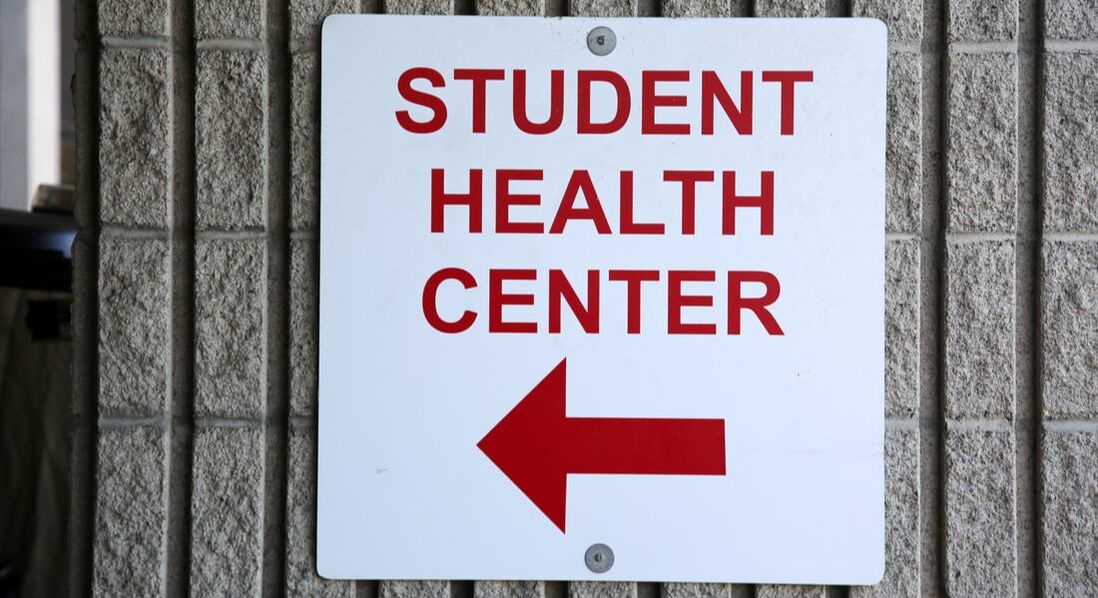|
At Student Health Centers across the United States, international students can access a wide range of healthcare services tailored to their needs. These centers serve as a one-stop destination for both physical and mental health support, offering everything from routine medical care to counseling services.
For instance, let's imagine Maria, an international student studying at a university in California. One day, Maria wakes up feeling unwell, experiencing symptoms of a cold. Unsure of what to do, she remembers that her university has a Student Health Center on campus. Without hesitation, Maria makes her way to the center, where she is greeted by friendly staff at the front desk. After a short wait, Maria is called in to see a healthcare provider. The provider listens attentively as Maria describes her symptoms and conducts a thorough examination. Based on Maria's symptoms and medical history, the provider diagnoses her with a common cold and recommends rest, hydration, and over-the-counter medication to alleviate her symptoms. Maria is relieved to receive prompt and expert care right on campus, without the need for an off-campus doctor's visit. But the Student Health Center offers more than just physical health services. Maria, like many international students, faces the stress and pressures of studying abroad. Feeling overwhelmed by coursework and adjusting to life in a new country, Maria decides to seek counseling support at the center. She schedules an appointment with a mental health counselor, who provides her with a safe and supportive space to discuss her concerns and develop coping strategies for managing stress and anxiety. Throughout her time at university, Maria continues to utilize the services offered by the Student Health Center, whether it's for routine check-ups, vaccinations, or ongoing mental health support. She appreciates the convenience, affordability, and expertise provided by the center, knowing that her health and well-being are in good hands. Here are the most important facts about the Student Health Center at a glance Services Offered: Student Health Centers offer a variety of services to address both physical and mental health needs. Some common services include:
Cost and Insurance: Many Student Health Centers offer services at low or no cost to students. Some schools include basic healthcare services as part of the student fees, while others may charge nominal fees for certain services or prescriptions. Additionally, some centers accept health insurance plans, including international student health insurance, which may cover a portion of the costs. It's essential to check with your school's Student Health Center regarding their specific pricing and insurance policies to understand what services are covered and any out-of-pocket expenses you may incur. Hours of Operation: Student Health Centers typically have convenient hours to accommodate students' busy schedules. While hours may vary depending on the school and the time of year, many centers are open during regular business hours on weekdays. Some may also offer evening or weekend hours for urgent care needs. Before visiting the Student Health Center, it's a good idea to check their hours of operation and appointment availability, which can often be found on the school's website or by contacting the center directly. In conclusion, Student Health Centers play a vital role in supporting the health and wellness of international students studying in the USA. From medical care to counseling services, these centers offer comprehensive support to help students thrive academically, emotionally, and physically during their time abroad.
1 Comment
OPT, or Optional Practical Training, is a temporary employment authorization for international students in the United States who are on an F-1 visa. It allows them to gain practical work experience directly related to their field of study. OPT is typically granted for up to 12 months after completing a degree program, and in some cases, it can be extended for an additional 24 months for STEM (Science, Technology, Engineering, and Mathematics) graduates.
During the OPT period, international students are allowed to work in the United States in jobs that are directly related to their major field of study. This practical training is intended to complement their academic knowledge and provide valuable hands-on experience in their chosen field. Now, regarding the question of whether one needs to purchase international insurance under OPT, it largely depends on the individual's circumstances. While international students studying in the United States are typically required to have health insurance coverage, whether they need international insurance specifically for OPT can vary. If an international student remains in the United States during their OPT period, they may choose to maintain their existing health insurance coverage or purchase a new plan if their current coverage is not sufficient. However, if the student decides to return to their home country or travel internationally during their OPT period, they may need to consider purchasing international insurance to ensure they have adequate coverage while abroad. Ultimately, the decision to purchase international insurance during OPT depends on factors such as the individual's travel plans, their existing health insurance coverage, and any specific requirements set by their OPT employer or program. It's advisable for international students to carefully evaluate their insurance needs and consult with their designated school official (DSO) or immigration advisor for guidance on OPT-related insurance requirements. Living as an international student in the USA can be an enriching experience, but it's essential to manage your finances wisely to make the most of your time abroad without breaking the bank. Here are some budget-friendly tips to help you navigate the cost of living and make your money go further:
1. Create a Budget Start by creating a monthly budget that outlines your income and expenses. Identify your sources of income, such as scholarships, part-time work, or financial aid, and estimate your monthly expenses, including rent, utilities, groceries, transportation, and entertainment. Having a budget will help you track your spending and avoid overspending. 2. Save on Housing Costs Consider sharing housing expenses by living with roommates or renting a room in a shared apartment. Explore affordable housing options near your university campus or in areas with lower rent prices. Additionally, look for housing arrangements that include utilities or offer discounted rates for students. 3. Cook at Home Eating out can quickly drain your budget, so try to cook meals at home as much as possible. Plan your meals, buy groceries in bulk, and take advantage of discounts and coupons to save money on food expenses. Packing your lunch and snacks for school can also help you save on dining costs. 4. Utilize Student Discounts Take advantage of student discounts and perks offered by local businesses, restaurants, theaters, and entertainment venues. Many establishments offer special deals and promotions for students, so always ask if there's a student discount available before making a purchase. 5. Use Public Transportation Save money on transportation costs by using public transit options such as buses, trains, or subways. Many cities offer discounted fares for students, so be sure to inquire about student transportation passes or discounted rates. Consider walking or biking for short distances to further reduce transportation expenses. 6. Find Free or Low-Cost Activities Explore free or low-cost recreational activities and entertainment options in your local area. Take advantage of campus events, museums with free admission days, community festivals, hiking trails, and outdoor parks. Engaging in affordable activities can provide opportunities for fun and relaxation without straining your budget. 7. Limit Non-Essential Expenses Identify non-essential expenses such as subscription services, impulse purchases, and entertainment expenses that can be reduced or eliminated to save money. Prioritize your spending on essential items and experiences that align with your values and goals as an international student. 8. Seek Part-Time Employment Consider seeking part-time employment opportunities to supplement your income and gain valuable work experience. Look for on-campus jobs, internships, or freelance opportunities that allow you to balance work with your academic responsibilities. Be mindful of your visa restrictions and eligibility requirements for working as an international student. Living on a budget as an international student in the USA requires careful planning and resourcefulness, but it's entirely manageable with the right strategies in place. By creating a budget, saving on housing costs, cooking at home, utilizing student discounts, using public transportation, finding free or low-cost activities, limiting non-essential expenses, and seeking part-time employment, you can make the most of your financial resources and enjoy your study abroad experience to the fullest. Stay tuned for more tips and advice on thriving as an international student in the USA. Studying abroad is an exciting adventure, but it's natural to feel homesick from time to time, especially when you're far away from family and familiar surroundings. Homesickness is a common experience among international students, but there are strategies you can use to manage it and make the most of your time in the USA.
Stay Connected One of the best ways to combat homesickness is by staying connected with loved ones back home. Schedule regular video calls, send messages, and share updates about your life abroad. Knowing that you're still a part of your family and friends' lives can provide comfort and support during challenging times. Build a Support Network While it's essential to stay connected with people from home, it's also crucial to build a support network in your host country. Reach out to other international students, join clubs or organizations, and participate in campus events. Making new friends and forming connections with people who understand what you're going through can help alleviate feelings of loneliness and isolation. Explore Your Surroundings Instead of dwelling on what you miss about home, focus on embracing your new environment. Take advantage of opportunities to explore the local culture, try new foods, and visit nearby attractions. Immersing yourself in new experiences can distract you from feelings of homesickness and help you create lasting memories in your host country. Stay Engaged Academically and Socially Keeping yourself busy with academic and social activities can prevent homesickness from taking over. Stay engaged in your studies, participate in class discussions, and seek out opportunities for academic enrichment. Additionally, get involved in campus clubs, sports teams, or volunteer organizations to meet new people and pursue your interests outside of the classroom. Seek Support If you're struggling with homesickness or experiencing persistent feelings of sadness and loneliness, don't hesitate to seek support. Many universities offer counseling services specifically for international students, where you can talk to trained professionals who understand the unique challenges you're facing. Talking about your feelings and getting guidance on coping strategies can make a significant difference in your overall well-being. Remember Why You Chose to Study Abroad Whenever you're feeling homesick, remind yourself of the reasons why you chose to study abroad in the first place. Whether it's to pursue academic opportunities, gain new perspectives, or challenge yourself personally and professionally, keeping your goals in mind can help you stay motivated and focused during difficult times. Final Thoughts Homesickness is a natural part of the study abroad experience, but it doesn't have to overshadow your time in the USA. By staying connected, building a support network, exploring your surroundings, staying engaged academically and socially, seeking support when needed, and remembering your motivations for studying abroad, you can effectively manage homesickness and make the most of your international education journey. Stay tuned for more tips and advice for thriving as an international student in the USA. |
Archives
March 2024
Categories |
Need help? We are always here for you!
|
For eligibility, enrollment, or general questions such as brochure requests or information about a group plan:
Compass Student Insurance 116 Village Blvd, Suite 306 Princeton, NJ 08540 +1 781 356 1999 info@studenthealthusa.com or simply use our chat or contact form! |
All questions related to telehealth must be addressed to MDLive, powered by AllyHealth:
Toll-free: (888) 565-3303 |




